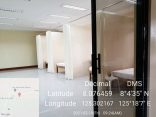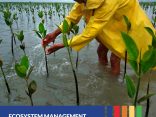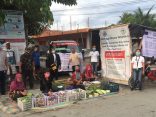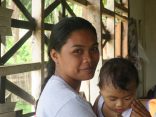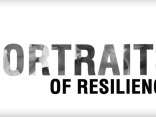“Not a single house was damaged because we prepared for the typhoon,” Romie Otacan, Barangay Captain of La Flora, Talacogon, Agusan del Sur proudly reported during the Tropical Storm Bopha (TS Bopha, locally known as Pablo) joint assessment made by CARE Nederland, Assistance and Cooperation for Community Resilience and Development Inc. (ACCORD), and Agri-Aqua Development Coalition–Mindanao (AADC).
Otacan narrated that as soon as the barangay (village) received the typhoon forecast, they immediately carried out their community contingency plan, which was formulated by the community through the Climate-proof Disaster Risk Reduction, a project being implemented by the Partners for Resilience, which includes CARE, ACCORD and AADC. A day before the forecasted landfall of TS Bopha, the residents anchored their houses to nearby trees to prevent them from collapsing or from being damaged, before moving to pre-identified evacuation centers such as the elementary school, health center, and barangay hall. Village officials were also noticeably carrying out confidently their responsibilities defined in their community contingency plan.
Results of the joint assessment revealed that at least 500 houses were either partially or totally damaged in the whole municipality of Talacogon. The typhoon ravaged Southern Mindanao, Northern Mindanao and CARAGA and left at least 700 persons dead and some 300,000 families homeless, according to the National Disaster Risk Reduction and Management Council. Residents said that Bopha is the worst typhoon that hit Talacogon, with winds even stronger than that of Washi (Sendong) which also punched through the municipality in December 2011.
For the past years, it has been a recurring challenge to convince LGUs and communities to invest in disaster risk reduction (DRR) initiatives, but Bgy. La Flora and other CARE barangays in Talacogon are proof that DRR pays off.

